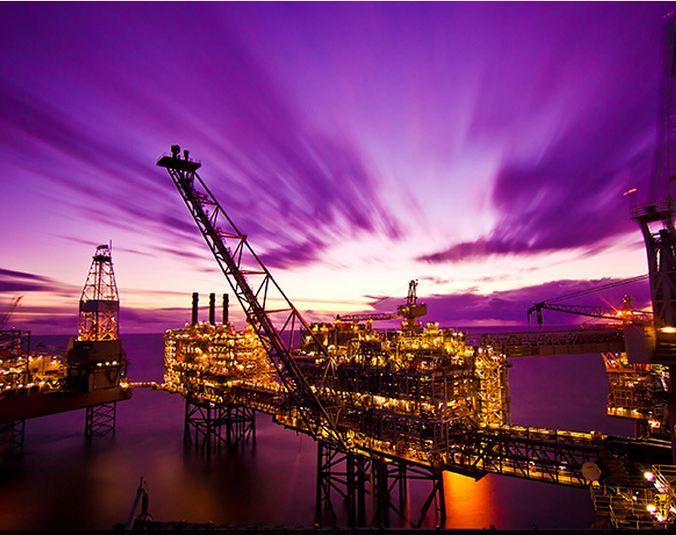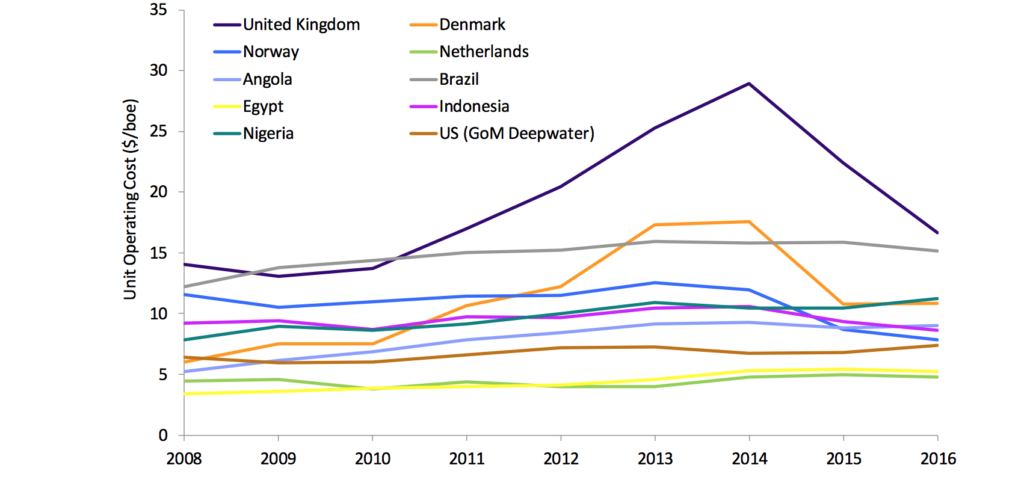
2018 will be a “critical” year for ensuring progress made in making the North Sea more efficient is not lost, according to Oil and Gas UK (OGUK).
Work carried out up until now has brought the UK Continental Shelf (UKCS) back to a position of strength, according to the industry body, where it can compete internationally.
Operating costs have roughly halved since the downturn began in 2014 compared to 2016,from $30 per barrel of oil equivalent (boe), to $15 as a result of efficiencies and an increase in production.
However, OGUK’s Efficiency Task Force says operators “cannot rest on their laurels” in improving competitiveness.
Even at $15/ boe, the UK remains well above Denmark ($11), Norway ($7) and the Netherlands ($4) in terms of costs.
The task force believes more work is needed to address the issue.
“I think the key area that most people will agree on is the cultural side of the industry,” says Ross Dornan, lead business advisor with OGUK.
“If we can get companies collaborating effectively, we can use that to build some sensible change in the industry and we can get some of the projects that aren’t yet competitive up and running and make some capital for the basin.”
He adds that there should be more done to “talk up” the benefits of doing business in the UK, such as the infrastructure and its ability to maximise recovery from a mature basin.
“There’s been a lot of good work in this area in the last few years. Operating costs have halved and that’s taken the UKCS back in a position that we can build and be competitive internationally.
“The improvements have been great but we are still a really expensive basin to do business so we cannot rest on our laurels.
“We have to talk up the positives of why we should do business here.”
In a bid to promote that culture of collaboration, the task force is expanding its roadshow this year.
The series has been set up to spread the efficiency message “far and wide” to the supply chain across the UK, as well as find case study examples of good practice.
Many have already been identified as a result of last year’s programme.
The Southern North Sea (SNS) Conference in Norwich earlier this week was to be among the sites the roadshow was exhibiting in, until it was called off due to bad weather.
Mr Dornan said: “The SNS is a different operating environment in terms of being shallow waters, its gas-based, and operating costs are lower by 20% on average.
“There are lessons that we can learn though. There is a lot of good, positive work here, especially in logistics that we can act and build on in other areas of the North Sea.”

